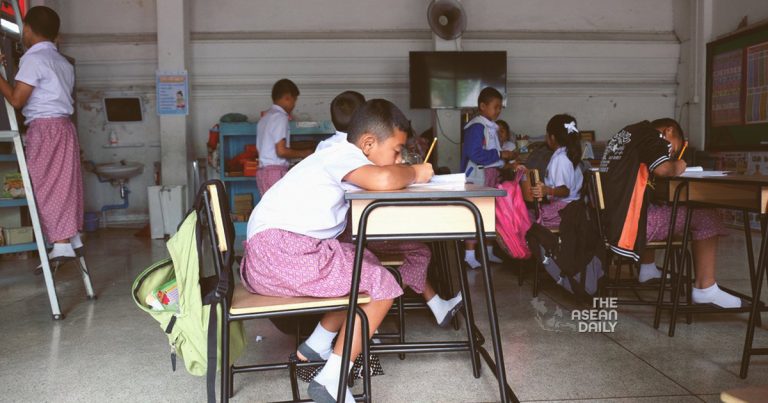8-8-2023 (BANGKOK) Thailand is poised to embark on a transformative journey to reshape its education system, ensuring its readiness to embrace the challenges and opportunities presented by artificial intelligence (AI). The clarion call for this imperative comes from none other than Ruangroj Poonpol, the Chairman of Kasikorn Business-Technology Group (KBTG), the technological arm of Kasikornbank (KBank), who advocates for a comprehensive revamp of the educational landscape.
Mr. Ruangroj Poonpol’s vision entails an ambitious yet pragmatic approach – an educational makeover that hinges on equipping both educators and students with AI knowledge, training, and tools. In a conversation with the Bangkok Post, he expounded upon the potential of Generative AI, a form of AI that has the power to elevate the realm of learning by enhancing traditional teaching methods and reinvigorating the process of skill enhancement.
Underpinning this educational renaissance are the “4C” principles, a pathway that facilitates the convergence of AI and human ingenuity, resulting in a synergy that enables learners to become “super learners.” The four guiding principles are “co-imagine,” which involves igniting the imagination of students through AI-enabled experiences; “co-exploring,” a quest for uncharted territories driven by AI inspiration; “co-thinking,” honing critical thinking skills with the assistance of AI; and “co-creating,” a creative voyage empowered by AI-driven innovation.
However, the vision doesn’t end there. The future of learning, according to Mr. Ruangroj Poonpol, will be anchored in the “4P” concept – project-based learning, peer collaboration, personal passion, and the integration of play into the learning process.
The implications of AI’s integration into education are multifaceted. AI will metamorphose into a guiding companion for learners, a force that augments and amplifies the efforts of educators. Importantly, AI has the potential to bridge the chasm between the teacher-student ratio, potentially transforming the educational landscape by offering personalized and tailored learning experiences.
AI’s role will extend to even the administrative aspects of education, with the possibility of it becoming a teacher’s assistant for tasks such as exam design or providing explanations in specialized subjects. Furthermore, Mr. Ruangroj Poonpol envisions a world where AI can accelerate the pace of teaching, rendering educators as “super teachers” with the assistance of technological automation, thereby freeing up valuable time to focus on their core mission of teaching.
While AI’s potential in the realm of education is vast, Mr. Ruangroj Poonpol underscores the pivotal role of teachers as gatekeepers, guiding students in the ethical and responsible use of AI. He advocates for intensive training of educators, equipping them with AI tools to empower their teaching, curate educational content, and foster a collaborative community among teachers to share best practices.
Moreover, he calls for a holistic transformation of the curriculum and educational metrics to align with future requirements, while instilling a culture of lifelong learning from the earliest stages of education. Collaborations between educational institutions and industry players, like KBTG’s partnership with King Mongkut’s Institute of Technology Ladkrabang, offer a glimpse of the practical implementation of this vision, involving internships and real-world problem-solving opportunities for students.
Looking forward, KBTG, in collaboration with MIT Media Lab, aims to introduce the Thai AI-Augmented Literacy Guidelines, paving the way for responsible AI integration in education. This landmark proposal, which encapsulates a harmonious balance between AI and human interaction, is poised to shape the trajectory of education in Thailand.




